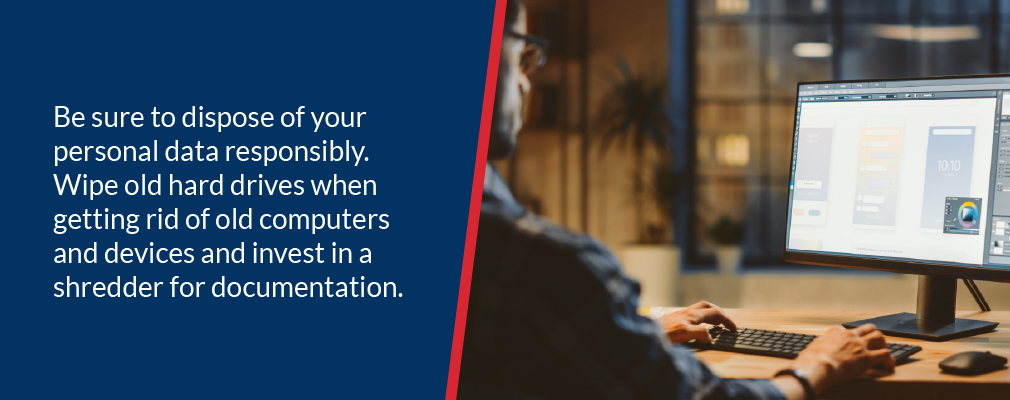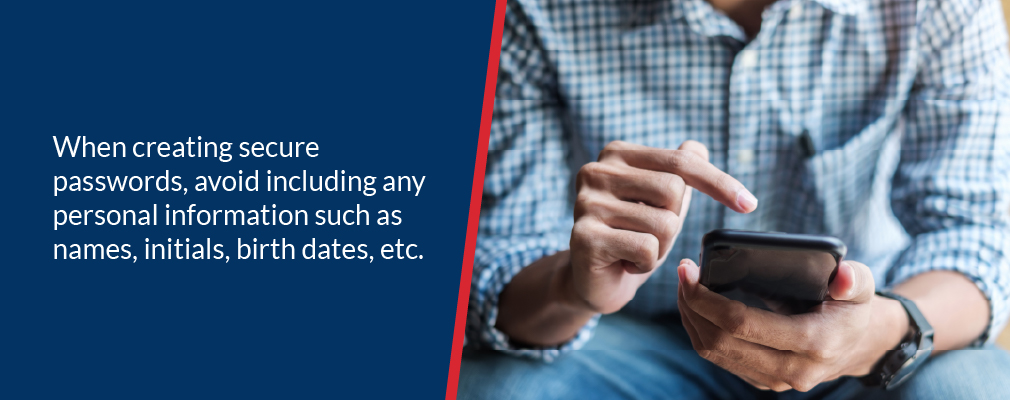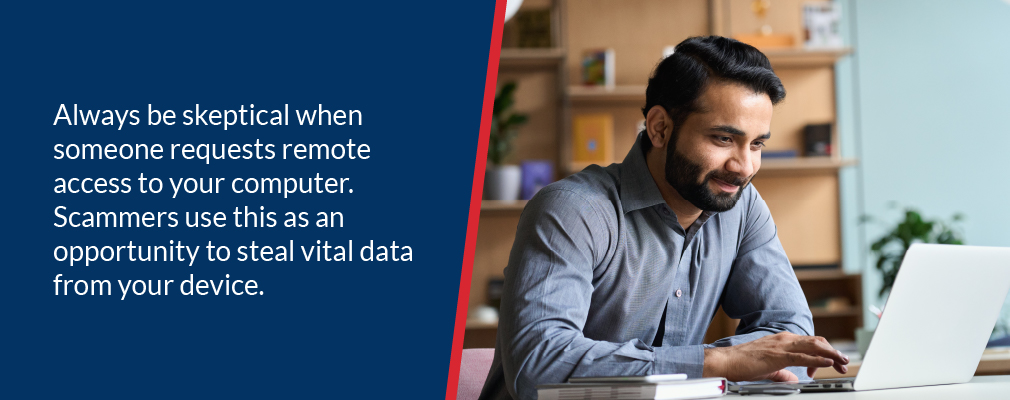Like sand through the hourglass, the world keeps on turning and scammers keep trying to trick consumers and businesses with online fraud. Whether the purpose is to steal your money, personal information, or gain access to your employer’s data, becoming a victim of online fraud can have serious consequences. It’s also a huge pain to sort out and recover from. So, follow these five strategies for spotting and avoiding Internet fraud.

What are the most common online scams?
Knowing what to look for is a good first step in preventing fraud. Here are the most common types of scams right now:
- Malware: A malicious software that damages or disables your computer. Scammers may steal sensitive data from your computer or ask you for a ransom payment to have your computer restored. Avoid opening or downloading attachments you weren’t expecting to receive. Before clicking on an unsolicited link, hover your mouse over it to view the complete URL. If it looks scammy, don’t click or you could end up unintentionally downloading malware.
- Ransomware: This is a form of malware usually delivered through phishing emails. If you end up with ransomware on your computer, you will be unable to access your data until/unless you pay the ransom to regain access to your data.
- Phishing: Forged or faked electronic communications such as email, social media message, or text message. Scammers pose as legitimate businesses, such as your cellphone provider or bank to try and trick you into giving them sensitive information such as your account login credentials, credit or debit card numbers, or bank account number. Again, beware of clicking on links–always “think before you click” by viewing the full URL first. And remember that legitimate institutions will never ask for your login credentials, full account number or social security number, etc.
- Charity Fraud: Fake charities often pop up in the wake of natural disasters, war. and other major events, though they can pose as legitimate charities as well. Charity fraud is a double tragedy because you are cheated out of your money, as are the people you intended to help. So, do your research to find a legitimate organization to donate to. Don’t just respond to random solicitations on social media or via email.
Be skeptical of emails, calls, and texts
As you learned in the previous section, one of the primary ways scammers try to trick you is via phishing messages. So, the best way you can protect yourself is by maintaining a default skepticism toward any messages from strangers or purportedly from legitimate companies that you weren’t expecting.
Don’t be afraid to push back on requests–ask to speak to a supervisor, for example, if you are contacted by phone. If you receive an email or text message saying there’s a problem with your account, contact the company directly by their publicly available customer service number to verify whether this is true. Scammers will use any cover story to convince you to give up your personal information, which can include promises of benefits or threats or punishment. Never give out your personal information to anyone over the phone, through email, or text unless you can absolutely verify that they represent an official organization. If you feel that you have been targeted with a scam, you can send a tip to the FBI via their website.
Practice positive password habits
It can be tempting to use the same password for multiple online accounts for the sake of convenience, but this makes it easier for hackers to access all your accounts if they steal your login credentials for one account. So, consider using a password manager to create and store unique passwords for each of your accounts for you.
If you do create your own passwords, try to use strong passphrases, combinations of numbers and letters, symbols, etc. Avoid using personal data, like birth dates, social security numbers, etc. in your passwords. Also avoid common sequences such as “abc” and “123.”

Never give anyone remote access to your computer
Some scammers will pose as a legitimate IT business and offer to remotely access your computer to resolve an issue for you. This is almost always fraudulent, and could come in the form of them offering to update your computer, initiate a refund or payment from an online account, install a vital piece of software, or even access your online banking info to initiate a transfer. This is becoming a common strategy for modern scammers, who will use their remote access to your computer as an opportunity to lock you out and steal your vital information. This can later be used against you to access your accounts, blackmail you, or can be sold on the dark web to the highest bidder.
Keep your financial data separate
As you’ve learned, fraudsters are after your data along with your money. So, storing financial data on your computer makes it vulnerable to theft. It’s best to use just one device to store financial documents and information on, such as an external hard drive that’s not even connected to the Internet. Store it in a secure place in your home, such as a locked filing cabinet or safe.
Dispose of your data properly
Finally, our last tip is for physically protecting your data by disposing of it properly. Physical documents containing sensitive personal and financial information should be shredded. You can buy a home shredder, pay for shredding at an office supply or shipping store, or take advantage of free community shredding events. Whatever you do, don’t just put intact documents out in the trash or recycling, as they could be stolen and your identity compromised.
Before getting rid of a computer, phone, or tablet device that contains important information, be sure to thoroughly wipe the hard drive before you get rid of it. Simply deleting your files isn’t always enough with today’s newer drives. You may even want to completely destroy the hard drive instead of simply wiping it if you are planning to dispose of the computer. Hard drive eraser utilities are also available for a stronger and more secure way to wipe your drive.
More Cybersecurity Advice From AMNB!
At American National Bank & Trust Company, we believe being local is more than just having an office in the community. It’s about looking out for our customers with better banking options and quick, local decisions. That’s why we provide the information you need to protect yourself and your finances from online fraud. Check out our other recent blog posts on cybersecurity topics:
- How To Spot The Signs of Phishing Scams
- How To Protect Your Finances While Shopping Online
- Tips For Securing Your Home Office
Established in 1909 in Danville, Virginia, we have a long legacy of helping people and communities thrive. With multiple banking locations in Virginia and North Carolina, we are proud to be your community’s hometown bank. Contact us today to learn more about our personal bank accounts, loans, and other financial services.


